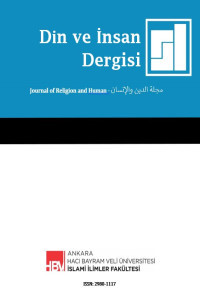İslâmî Dönem Mantığın Formel Hale Getirilmesi ve Delâlet’ül-Elfâz gibi Konuların Eklenmesi
Düşünce tarihinde mantık ilmini oluşturan isim Aristoteles’tir. Aristoteles’ in mantık ilmi içerisinde oluşturduğu çizgi zaman içerisinde farklı dil, düşünce ve dinlerin de etkisiyle birlikte yorumlanmış ve geliştirilmiştir. Bu yorumlama biçimleri hem mantığın gelişmesine hem de nesiller boyunca bu ilmin aktarılıp tevârüs edilmesini sağlamıştır. Bu yorumlama biçimlerinden birisi de İslam düşüncesi kanalıyla olmuştur. İslam düşüncesi ile birlikte mantık ilmi formel hale getirilerek yeni biçim alması sağlanmıştır. Mantıkta nesnel düşünce esas amaç olduğu için dil ve düşünce arasında her zaman sıkı bir ilişki olduğu düşünülmüştür. Bu sebeple mantık ilmi içerisine nesnel düşüncenin daha doğru yollarla elde edilebilmesi için Delâletü’l-Elfâz bahsi eklenmiştir. Bu sayede bir kelimenin zihinde var olan çeşitli anlamları doğru bir zemin üzere oturacak ve düşüncenin nesnelliği korunmuş olacaktır.
Making Logic a Formal Science in the Islamic Period and Adding Topics such as Delâlet'ül-Elfâz
The name that created the science of logic in the history of thought is Aristotle. The line created by Aristotle in the science of logic has been inter-preted and developed in the course of with the influence of different languages, thoughts and religions. These forms of interpretation have enabled both the development of logic and the transmission and inheritance of this science over generations. One of these forms of interpretation has been through Islamic thought. With the thought of Islam, the science of logic was made formal and it took a new form. Since objective thinking is the main purpose in logic, it has always been thought that there is a close relationship between language and thought. For this reason, the subject of Delâletü'l-Elfâz has been added to the science of logic so that objective thinking can be obtained in more accurate ways. In this way, the various meanings of a word in the mind will be placed on the right ground and the objectivity of the thought will be preserved.
